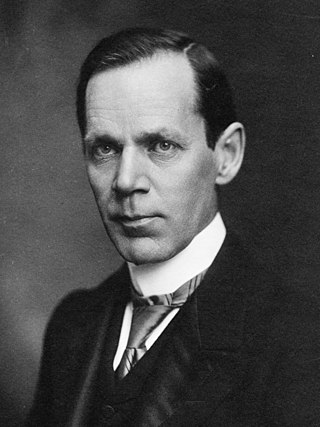Top Qs
Timeline
Chat
Perspective
Richard C. Maclaurin
American physicist (1870–1920) From Wikipedia, the free encyclopedia
Remove ads
Richard Cockburn Maclaurin (/ˈkoʊbərn/ KOH-bərn; June 5, 1870 – January 15, 1920)[2][3] was a Scottish-born U.S. educator and mathematical physicist. He was made president of MIT in 1909, and held the position until his death in 1920.
During his tenure as president of MIT, the Institute moved across the Charles River from Boston to its present campus in Cambridge. In Maclaurin's honor, the buildings that surround Killian Court on the oldest part of the campus are sometimes called the Maclaurin Buildings.
Earlier, he was a foundation professor of the then Victoria College of the University of New Zealand from 1899 to 1907. A collection of lecture theatres at the Kelburn campus of that university were named after him. He was also a professor at Columbia University from 1907 to 1908.
Remove ads
Personal
Maclaurin was born in Scotland, and was related to the noted Scottish mathematician Colin Maclaurin. He emigrated to New Zealand with his family at the age of four. In 1904 he married Alice Young of Auckland, and they had two sons. His brother James Scott Maclaurin (1864–1939) was a noted chemist, who invented a process for extracting gold with cyanide.
Education
- University Entrance Scholar, 1887, Auckland Grammar School[4][1]
- B.Sc. (Hons), Mathematics, 1890, Auckland University College.
- BA, 1895 (12th wrangler); LL.D., 1904, St John's College, University of Cambridge.[1]
Publications
- On the Nature and Evidence of Title to Realty, 1901
- Treatise on the Theory of Light, 1908
Honors
- Smith's Prize in Mathematics, 1896
- Yorke Prize in Law, University of Cambridge, 1898
- Elected member of the American Philosophical Society, 1910[5]
- Elected member of the America Academy of Arts and Sciences, 1911[6]
References
External links
Wikiwand - on
Seamless Wikipedia browsing. On steroids.
Remove ads

